- Home
- Greg Keyes
Godzilla
Godzilla Read online
CONTENTS
Cover
Title Page
Copyright
Dedication
Prologue
One
Two
Three
Four
Five
Six
Seven
Eight
Nine
Ten
Eleven
Twelve
Thirteen
Fourteen
Fifteen
Sixteen
Seventeen
Eighteen
Nineteen
Twenty
Twenty-One
Twenty-Two
Twenty-Three
Epilogue
About the Author
Acknowledgments
NOVELIZATION BY GREG KEYES
BASED UPON THE SCREENPLAY BY MICHAEL DOUGHERTY & ZACH SHIELDS
STORY BY MAX BORENSTEIN AND MICHAEL DOUGHERTY & ZACH SHIELDS
BASED ON THE CHARACTERS “GODZILLA,” “KING GHIDORAH,” “MOTHRA”
AND “RODAN” OWNED AND CREATED BY TOHO CO., LTD.
TITAN BOOKS
GODZILLA: KING OF THE MONSTERS – THE OFFICIAL MOVIE NOVELIZATION
Print edition ISBN: 9781789090925
E-book edition ISBN: 9781789090932
Published by Titan Books
A division of Titan Publishing Group Ltd
144 Southwark Street, London SE1 0UP
First edition: May 2019
1 2 3 4 5 6 7 8 9 10
This is a work of fiction. Names, characters, places, and incidents either
are the product of the author’s imagination or are used fictitiously, and
any resemblance to actual persons, living or dead, business establishments,
events, or locales is entirely coincidental. The publisher does not have any
control over and does not assume any responsibility for author or third-
party websites or their content.
Copyright © 2019 Legendary. All Rights Reserved.
TM & © TOHO CO., LTD.
MONSTERVERSE TM & © Legendary.
No part of this publication may be reproduced, stored in a retrieval system,
or transmitted, in any form or by any means without the prior written
permission of the publisher, nor be otherwise circulated in any form of
binding or cover other than that in which it is published and without a
similar condition being imposed on the subsequent purchaser.
A CIP catalogue record for this title is available from the British Library.
To Gwen Campbell
Turning and turning in the widening gyre
The falcon cannot hear the falconer;
Things fall apart; the centre cannot hold;
Mere anarchy is loosed upon the world,
The blood-dimmed tide is loosed, and everywhere
The ceremony of innocence is drowned;
The best lack all conviction, while the worst
Are full of passionate intensity.
Surely some revelation is at hand;
Surely the Second Coming is at hand.
The Second Coming! Hardly are those words out
When a vast image out of Spiritus Mundi
Troubles my sight: somewhere in sands of the desert
A shape with lion body and the head of a man,
A gaze blank and pitiless as the sun,
Is moving its slow thighs, while all about it
Reel shadows of the indignant desert birds.
The darkness drops again; but now I know
That twenty centuries of stony sleep
Were vexed to nightmare by a rocking cradle,
And what rough beast, its hour come round at last,
Slouches towards Bethlehem to be born?
The Second Coming
William Butler Yeats
PROLOGUE
THE DEPTHS
He woke, and he prowled his territory.
He was in no hurry. He wasn’t hungry, only smelling, seeing – listening.
The depths were not silent.
The deepest sound was time; the steady, slow grind of the earth, the slipping of stone under stone. He heard this not with his ears but through his bones. It was loudest in the hot places where he fed and rested, but it was everywhere, the background against which all other sounds existed. Sometimes it grew sharper when the earth cracked, and the heat came out, bearing sustenance.
Quicker were the songs of the tides, which were nowhere the same. He knew each contour of the continents by the sound of their tides, moving in and out like breath. Even in deep ocean, no two trenches or seamounts sounded the same as the surface swelled and sank above them.
Smaller and swifter still, the clicks, the low and high calls of the great swimmers, the high-pitched pipping of the smaller ones, the grunts, whistles, chirps of life.
The sea was never silent.
But it had been quieter, before strange sounds invaded the ocean; the churning and banging and screeching of unliving things that left the smell of oil behind them. The great swimmers could no longer hear each other well. Sometimes they lost their way, could not find each other. Over the ages, the sounds of the sea had changed, but never so much, and never so quickly.
Now there was a new song. It pulsed through the deeps, faint, but unmistakable. The voice of something in his territory that should not be there.
ONE
As usual, Emma woke before the alarm sounded. Her restless mind rarely allowed her the benefit of a full night’s sleep, and today was shaping up to be an exciting one. She’d put in a long night, but it had been worth it. She stayed in bed a few more minutes, going over her plans for the day.
She rose, showered, brushed her teeth, combed out her long auburn hair, dressed. She turned on the television, flipped through a few channels, but didn’t hear anything she didn’t already know. She paused, however, when she came to the BWN. It showed a senate hearing. Serizawa and Graham were there, looking beleaguered. She remembered a similar inquiry, five years ago, with her in the hot seat. She didn’t envy the two scientists.
“Top brass at the mysterious Monarch organization will face another intense grilling as the government continues to push for extermination of the Titans,” the anchor was saying, “and rumors persist that Monarch may be hiding even more creatures discovered since the attacks of 2014, a historic tragedy that changed the world as we know it forever. The day the world discovered that monsters are real…”
* * *
Some people had known there were monsters in the world for many years. Generations. But mostly the monsters slept or lurked in remote corners of the planet. They kept to themselves. They were watched, and in some cases contained – by Monarch. But five years ago, when a monster broke free from containment in Japan and charted a path of destruction from Japan, through Honolulu and finally San Francisco, the fact that monsters were real became very public knowledge. The world learned of Godzilla.
Thousands died in a few days. Once great cities lay in ruins. When it was over, two MUTOs – Massive Unidentified Terrestrial Organisms – lay dead, killed by Godzilla. And when the fight was over the wounded Godzilla dragged himself into the ocean and vanished.
A few months later he reappeared to fight another MUTO, this time in more remote places with less damage and fewer collateral deaths. Then he once more returned to the deeps.
For five years, humanity had lived in fear of another attack. The housing market crashed as the value of waterfront property plummeted. Schoolchildren drilled to evacuate in case of a monster attack.
As the monsters’ existence came to light, so did Monarch. Scientists from the organization were called before various government bodies and
questioned at length about their intentions and methods. In the years since the attacks, intelligence agencies and investigative reporters had come to believe that Godzilla and the MUTOs weren’t the only monsters out there. That there might be more. Many more.
Emma turned her gaze from the screen and down to a hard black plastic case on the floor.
It’s going to work, she thought. I know it will. But if she was sure, why was she so nervous?
She turned the TV off, and heard a piercing noise from the next room.
“Maddie?” she said.
* * *
Madison pushed some of the schoolbooks on the kitchen table aside to make room for her sticker-plastered laptop, put in her earbuds and scrolled through her email as the Pixies’ “Wave of Mutilation” began hammering at her eardrums.
As usual, more than half of the emails were from Dad. That wasn’t all that surprising; she didn’t have many friends and even less family, outside of Mom and Dad. Neither did Dad, at least not anymore, which probably explained why he wrote her at least once a day, and often more, despite the fact that it had been a long time since she’d answered him. She hadn’t even opened the most recent ones.
She wasn’t entirely sure why. There was Mom, of course, and what she would think. And she had her own misgivings. But he was so persistent, and she did miss him, a lot. She had a clear picture of him in her mind, sending the mail, checking for her response and finding nothing. The look of disappointment on his face.
Mom might not understand, but Maddie was sure he was different now. Maybe not all the way back to his old self, but better, way better.
She let out a breath and clicked on the most recent mail.
Hey Madison, it read, haven’t heard from you guys in a few months. Hope you’re having fun. Here are a few pics of the wolves I’ve been studying. Aren’t they cute?
Of course, she loved the wolves. He knew that. Like everything wild and pure, they appealed to her in a way so deep and strong she couldn’t explain it out loud. And the pups were really cute. But she was also a little jealous of them. Dad was always out in the wilderness, in Colorado. With the wolves. And although she knew it was more complicated than that, it still left a hollow in her gut that boiled down to this: why could he be there for the wolves, but not for her?
But of course, when he was around, the tug-of-war always started again, with her as the rope.
Among the pictures was one selfie. Dad had a little more gray in his brown hair than when she had last seen him. He was attempting to look silly and doing a pretty good job of it. It made her think of better times, the games they had played together. He was trying to reconnect with her. So maybe she should try, too.
She hit reply and placed her fingers on the keyboard, trying to think how to start.
Maybe just the basics.
Sorry I haven’t written back, she began. I miss you. But there’s something I want to talk to you about.
Again she paused, glancing nervously at her mother’s room. How much should she tell him? Nothing, if Mom had anything to say about it. Dad wasn’t supposed to be involved in any of this anymore. But it was so big, what was happening, so important. He shouldn’t be completely out of the loop.
I’m getting worried about Mom—she began.
And then the smoke detector started its shrill beeping.
“Oh, shit, shit, shit,” she yelped, bolting up. She had forgotten. Why hadn’t she smelled it?
But she did now, as smoke boiled up from the pan of burning bacon, filling the tiny kitchen with a gray haze and the smell of ruined porky goodness. She yanked it off the stove, but it was way too late. The rashers were now just strips of charcoal.
Out of the corner of her eye, she saw Mom enter the kitchen. Of course.
Shit, again, she thought. This place was way too small to get away with anything.
“Maddie?” Mom said.
Her mother – Dr. Emma Russell – was a paleobiologist. These days, that was one of the coolest jobs around. But paleobiology was a lot like detective work, or forensics – deducing the big picture from the little things.
Which meant it was hard to pull anything over on her.
“Good morning!” she blurted as she scrambled to turn off the smoke alarm. “Mom! Hi! I made us breakfast.”
“Oh, God,” Mom said, and hurried to help her with the mess.
“It’s eggs, toast, and what was once… bacon.”
Her mom smiled. “And which do you recommend?”
“The toast and eggs,” she said, with a chuckle.
“Thank you,” Mom said, turning to the counter and sitting down. She glanced at the open laptop.
Maddie reached over and pushed it closed, trying to look casual.
Okay, she thought, that didn’t look suspicious at all.
“Coffee?” she asked, pouring a cup.
“What were you working on?” her mom asked.
“Nothing,” Madison lied, putting the plates on the table. “Just looking up recipes.”
Before she even finished the sentence, she saw her mother didn’t buy it. Of course she didn’t.
She sat and poked at her eggs, trying to find the right spin on it.
“Dad’s been emailing me,” she admitted, finally.
Alarm and consternation flitted across her mother’s face, quickly replaced by a carefully neutral expression. She was trying not to freak out. And as usual, doing a pretty good job, at least on the outside. And she was still listening, which was good.
“He looks good,” Maddie said. “Healthy.”
“Have you responded?” Mom asked.
“Not yet,” she said. She took a bite of her eggs. Now Mom was trying to find the tactful response. It was strange; they were so tight on most things. They didn’t argue a lot, and it was very seldom things got awkward between them.
But the subject of Dad never failed to make them both uncomfortable.
“Honey,” her mother began, “I just don’t want to see you get hurt.”
“I know.”
“Especially with everything that’s going on right now.”
But that was just the thing. A lot was going on, and maybe Dad should know. He deserved to know. But she knew she couldn’t say that to Mom.
“Mom, I know,” she said instead. “Really.”
For a moment her mother was silent.
“Listen,” she said finally, in a softer voice. “I know things haven’t been easy for you, but we’re gonna get through this. Together.”
She thought of Dad, in Colorado, with the wolves. And years ago, when everything had seemed fine – and wasn’t. It was hard to trust that kind of promise. No one knew for sure what was going to happen even in the next few minutes, much less a year from now, or more. Not even her mother.
“You’re sure he’s gonna be okay?” she pressed.
“He’s in the safest place he can be right now,” her mother assured her. Then she perked up a little.
“Hey, wanna hear some good news? I finished it.”
For a split second, Madison didn’t know what she meant. But then she saw the metal case. The ORCA.
“Really?”
Her mother nodded, unable to suppress a beam of pride. And why shouldn’t she be proud? She had been working her ass off on it for years. She even remembered her and Dad tinkering with it a little, way back when. But these past few months the ORCA had seen more of Mom than she had. But that was okay. This was exciting. This was everything, really. It was going to change the world.
“You think it’s going to work?” she asked.
Mom stood up and lifted the case.
“It’s going to work,” she said.
A low, grating rumble shivered the room. The lights went out, flickered back on, dimmed, and came back up again. A high-pitched shriek cut through the nearly subsonic growl. It sounded like nothing Maddie had ever heard before – and living with Mom, she had heard some awfully weird things.
Mom went to the window, frow
ning, eyes wide and lips pulled tight. Maddie joined her.
“It’s going to be okay,” Maddie said.
Mom put her arm around her.
Her two-way radio crackled on.
“Dr. Russell,” a man’s voice said. “We need you in containment.”
Her mother seemed a little disoriented, but then she looked at Madison and her composure returned.
“On my way,” she said. She put on her jacket and picked up her boots.
Maddie grabbed her own muddy boots. She already had her hoodie on. Good to go.
Mom shot her a questioning glance.
“You’re kidding,” Maddie said. “Of course I’m going.”
Mom’s only answer was a proud smile. Then she picked up the ORCA and they went outside.
* * *
Inside, their quarters could have been anywhere. Her mom had tried to make them as “normal” as possible. But once you went outside – or even looked out the window – the illusion was broken. Their apartment was a temporary barracks, a neat little prefab house, L-shaped, with solar panels on the roof. It sat on a forested hill looking down on a compound of similar structures – a sort of fancy trailer court surrounded by a chain-link fence. A couple of watchtowers kept vigil over the compound, and satellite dishes maintained their connection with the rest of the world, at least as much contact as Monarch protocols allowed.
Outside, the cool damp air smelled of decay, freshly turned earth, tropical flowers, bruised leaves, and something faintly metallic. Council trees with thickly buttressed trunks rose up through a lower canopy of tropical evergreens and climbing vines, their little piece of the highland rainforest that filled the valley and spread into the surrounding mountains. Monkeys, gibbons, more birds than she could identify even with the help of the Internet variously flew, climbed or swung through the dense branches. And insects – so many strange, fascinating species. Once she had seen a walking stick half a foot long. She’d thought that was impressive, at the time.
But as amazing as all that was, the “site” was much cooler.
Surrounded by lush, green mountains, from the camp it looked something like a mountain itself, although on second look it was too regular. Beneath an encrustation of climbing vines, lianas, ferns, and creepers, a gigantic four-sided pyramid rose in steps, eight in all. It resembled the Great Pyramid of Cholula in Mexico and the ziggurats of ancient Mesopotamia, but it also shared some features with the hundreds of ancient temples scattered around China and Southeast Asia. But the archaeologists said this one was different. From what they said, it was far older than any of the better-known ruins. Dr. Lille, one of the epigraphers on the team, once told Maddie the glyphs on its carved surfaces no more resembled ancient Chinese than they did Mayan hieroglyphs – yet they reminded her of both, and also of the Indus valley script and undeciphered glyphs of Easter Island.

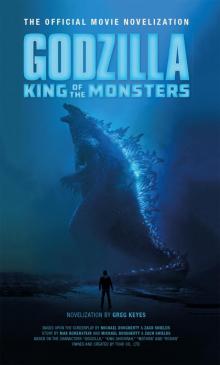 Godzilla
Godzilla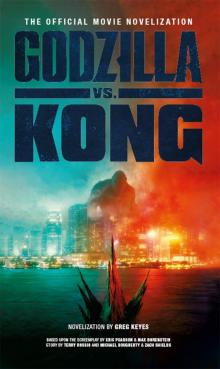 Godzilla vs. Kong
Godzilla vs. Kong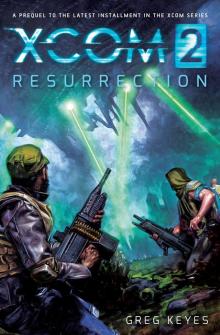 XCOM 2- Resurrection
XCOM 2- Resurrection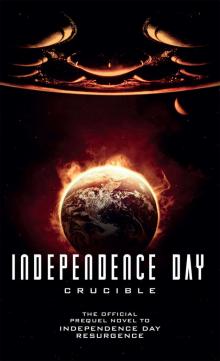 Independence Day: Crucible (The Official Prequel)
Independence Day: Crucible (The Official Prequel)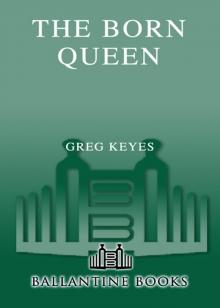 The Born Queen
The Born Queen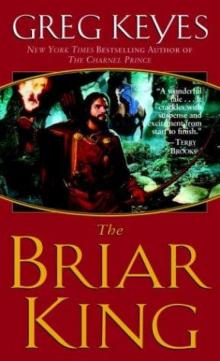 The Briar King
The Briar King Star Wars The New Jedi Order - Dark Journey - Book 10
Star Wars The New Jedi Order - Dark Journey - Book 10 Star Wars: New Jedi Order Book 8b: Emissary of the Void
Star Wars: New Jedi Order Book 8b: Emissary of the Void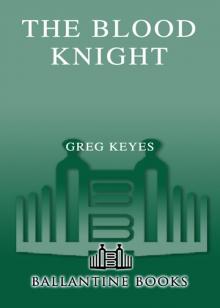 The Blood Knight
The Blood Knight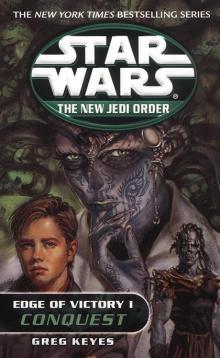 Star Wars - Edge of Victory - Book 1: Conquest
Star Wars - Edge of Victory - Book 1: Conquest Edge of Victory 2 Rebirth
Edge of Victory 2 Rebirth Lord of Souls: An Elder Scrolls Novel
Lord of Souls: An Elder Scrolls Novel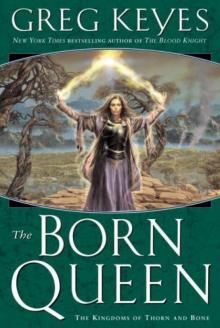 The Born Queen tkotab-4
The Born Queen tkotab-4 Rebirth: Edge of Victory II
Rebirth: Edge of Victory II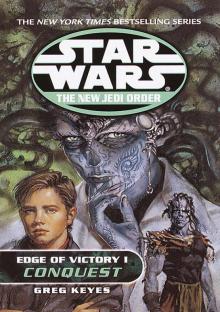 Conquest: Edge of Victory I
Conquest: Edge of Victory I Emissary of the Void
Emissary of the Void The Blackgod
The Blackgod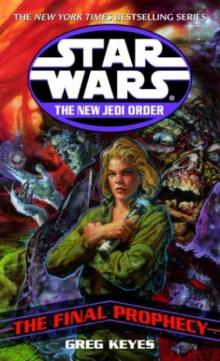 Star Wars The New Jedi Order - The Final Prophecy - Book 19
Star Wars The New Jedi Order - The Final Prophecy - Book 19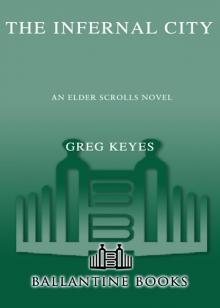 The Infernal City
The Infernal City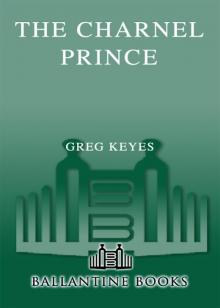 The Charnel Prince
The Charnel Prince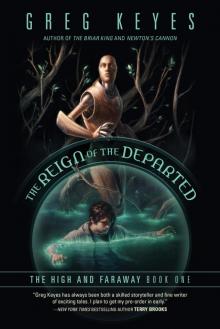 The Reign of the Departed
The Reign of the Departed Lord of Souls es-2
Lord of Souls es-2 Chosen of the Changeling
Chosen of the Changeling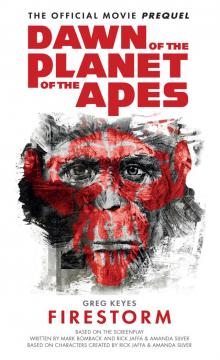 Dawn of the Planet of the Apes
Dawn of the Planet of the Apes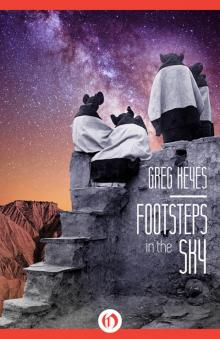 Footsteps in the Sky
Footsteps in the Sky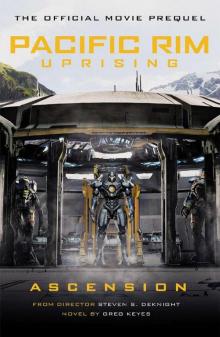 PACIFIC RIM UPRISING ASCENSION
PACIFIC RIM UPRISING ASCENSION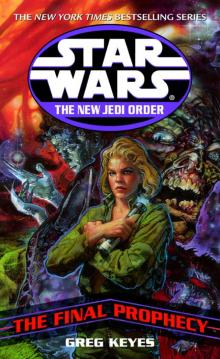 The Final Prophecy: Edge of Victory III
The Final Prophecy: Edge of Victory III